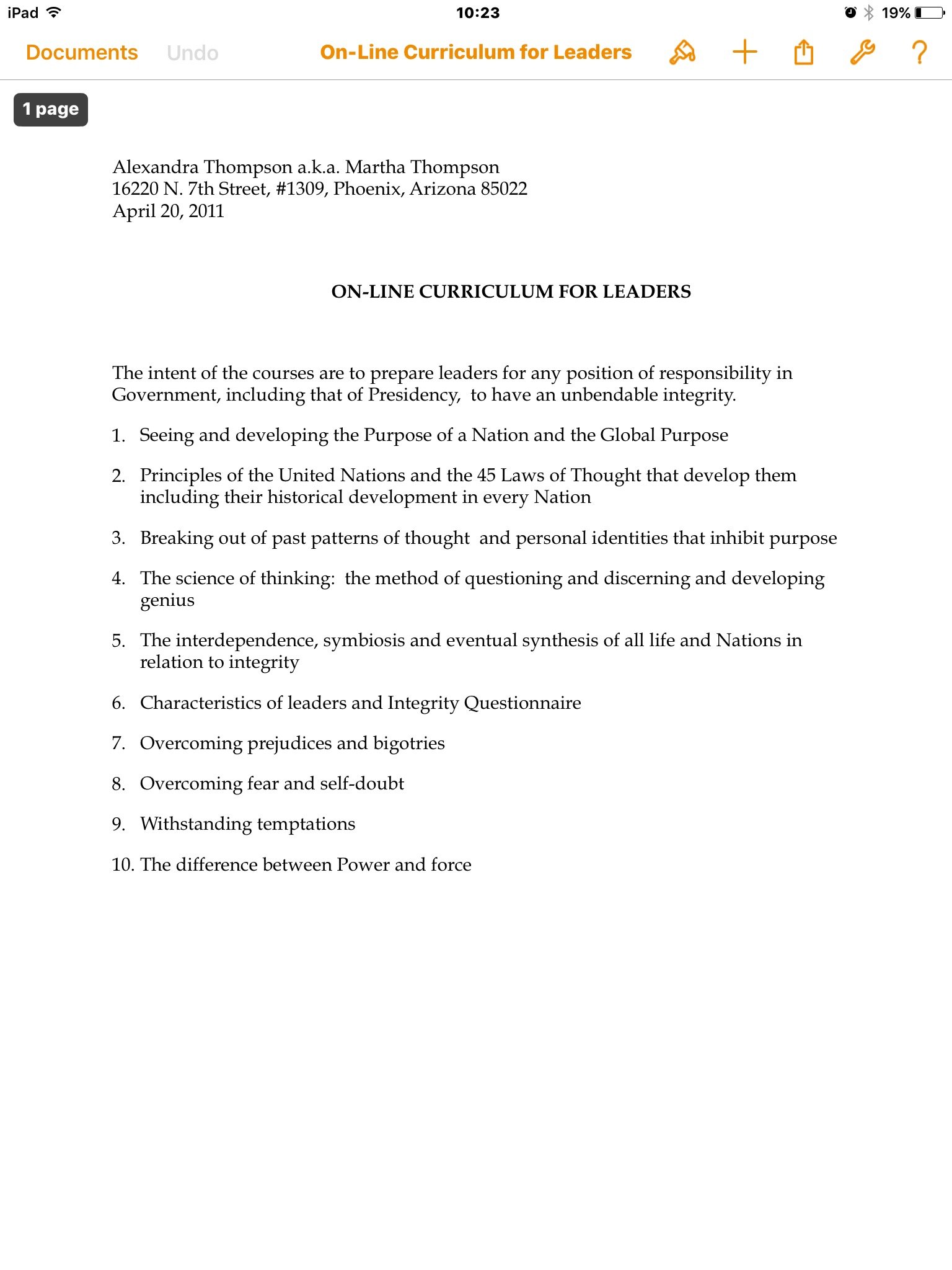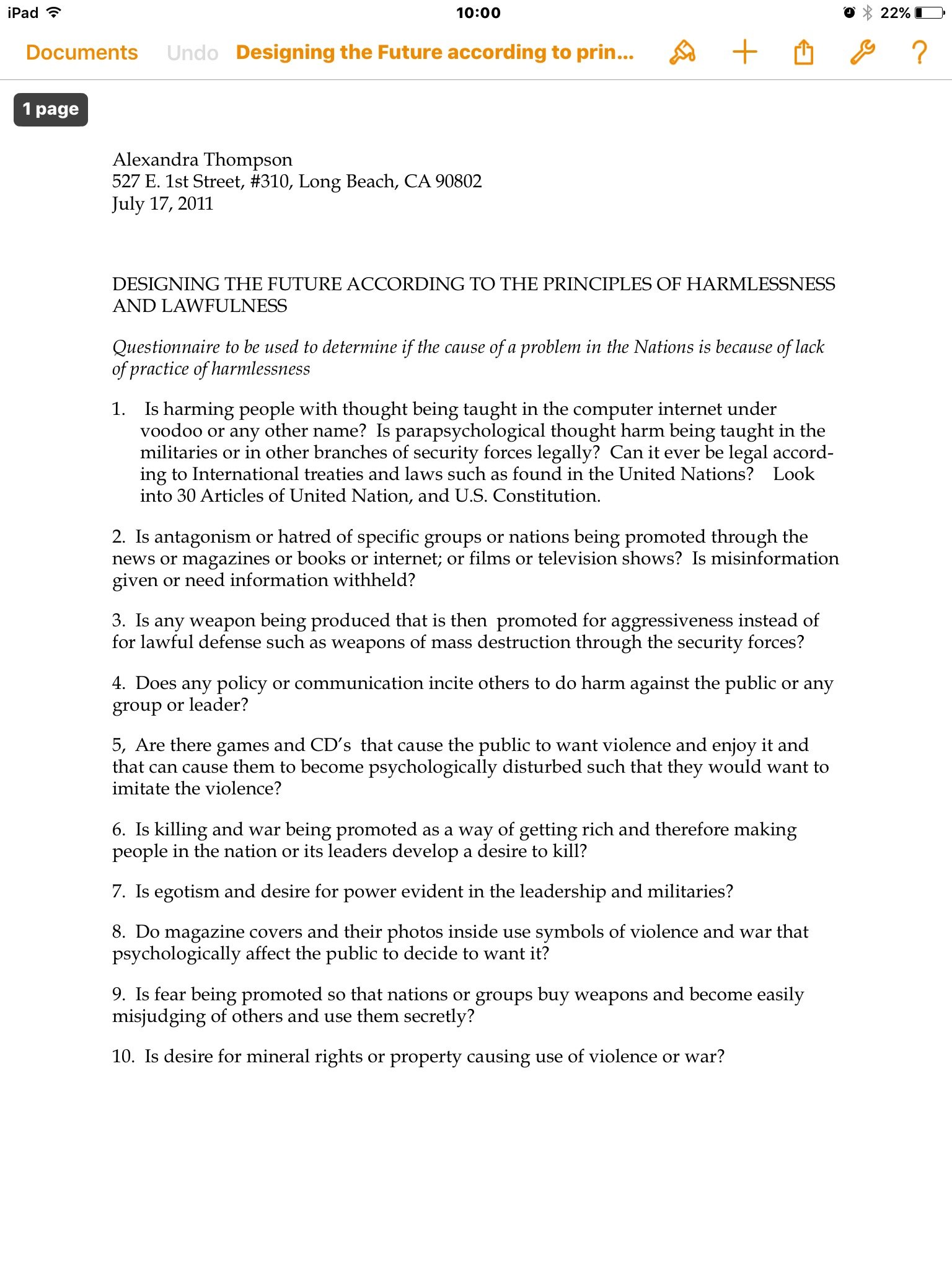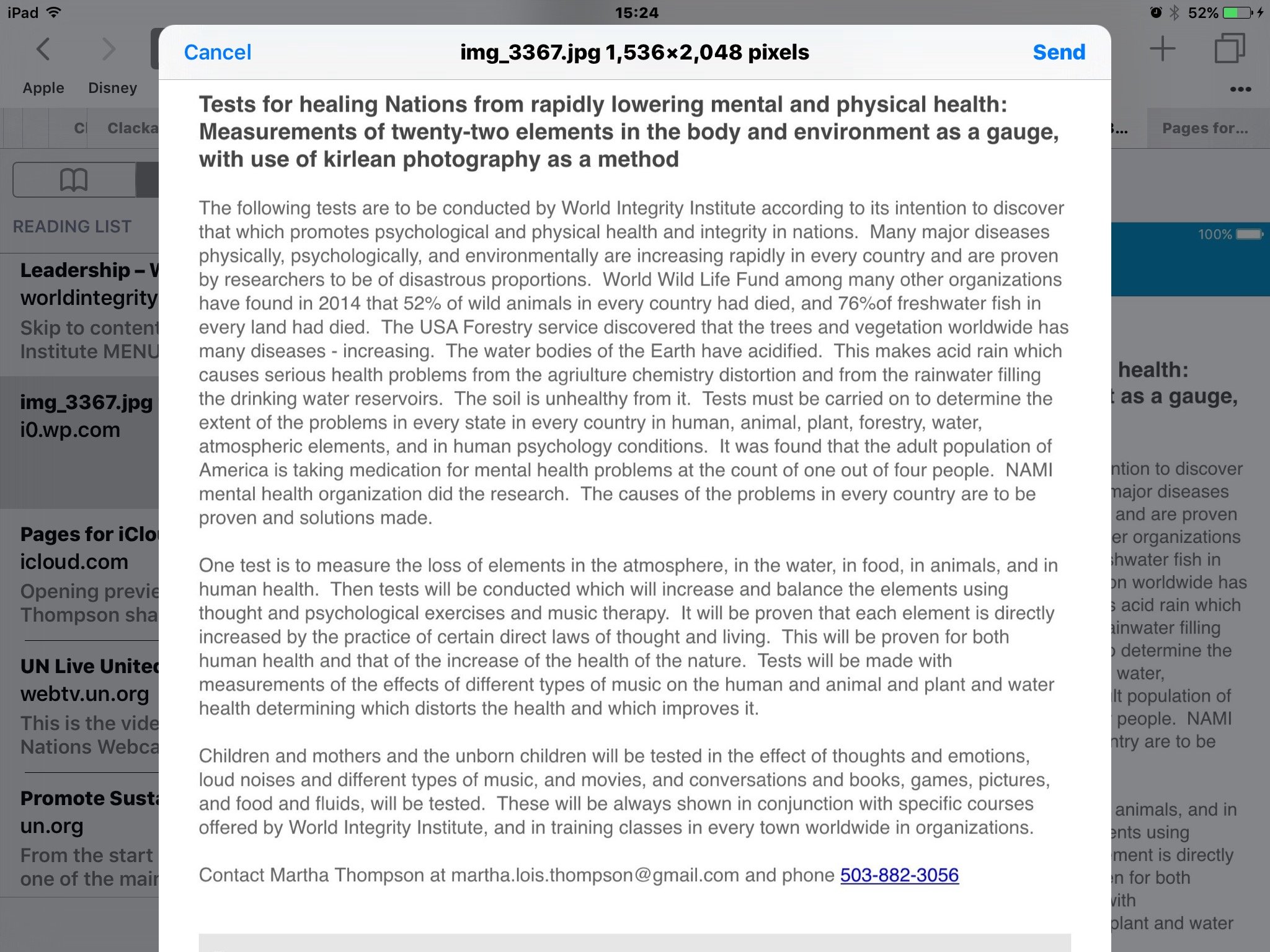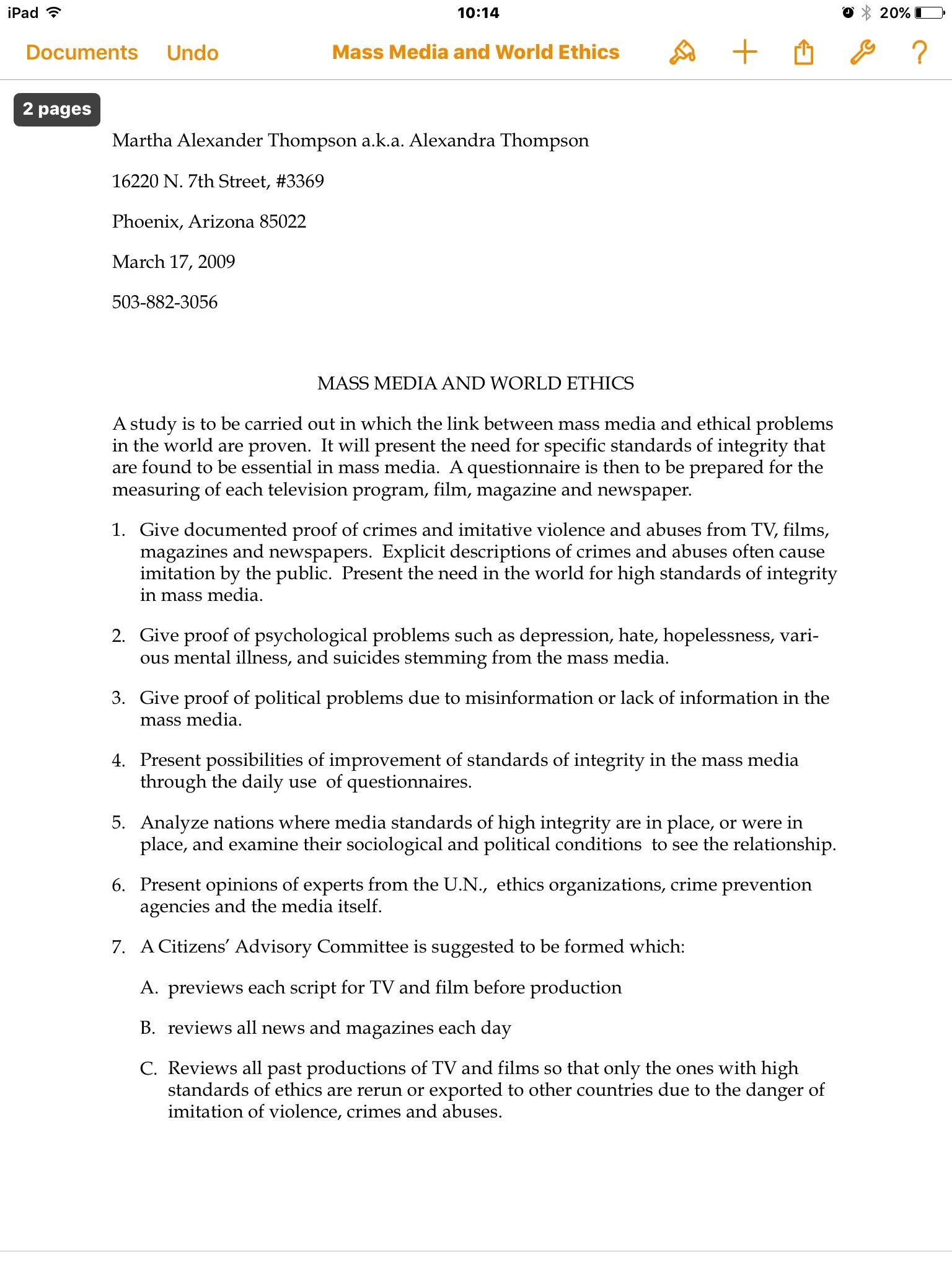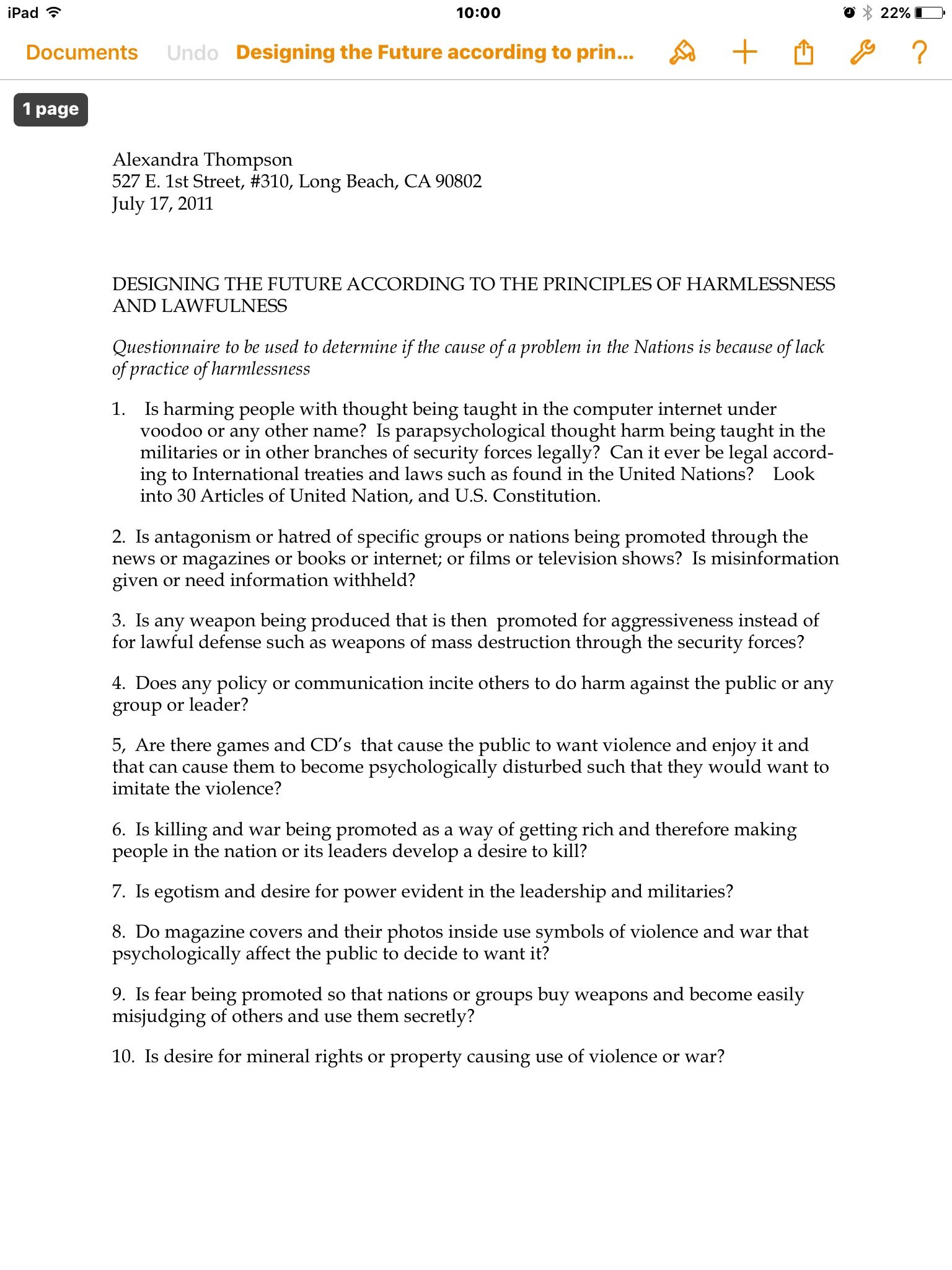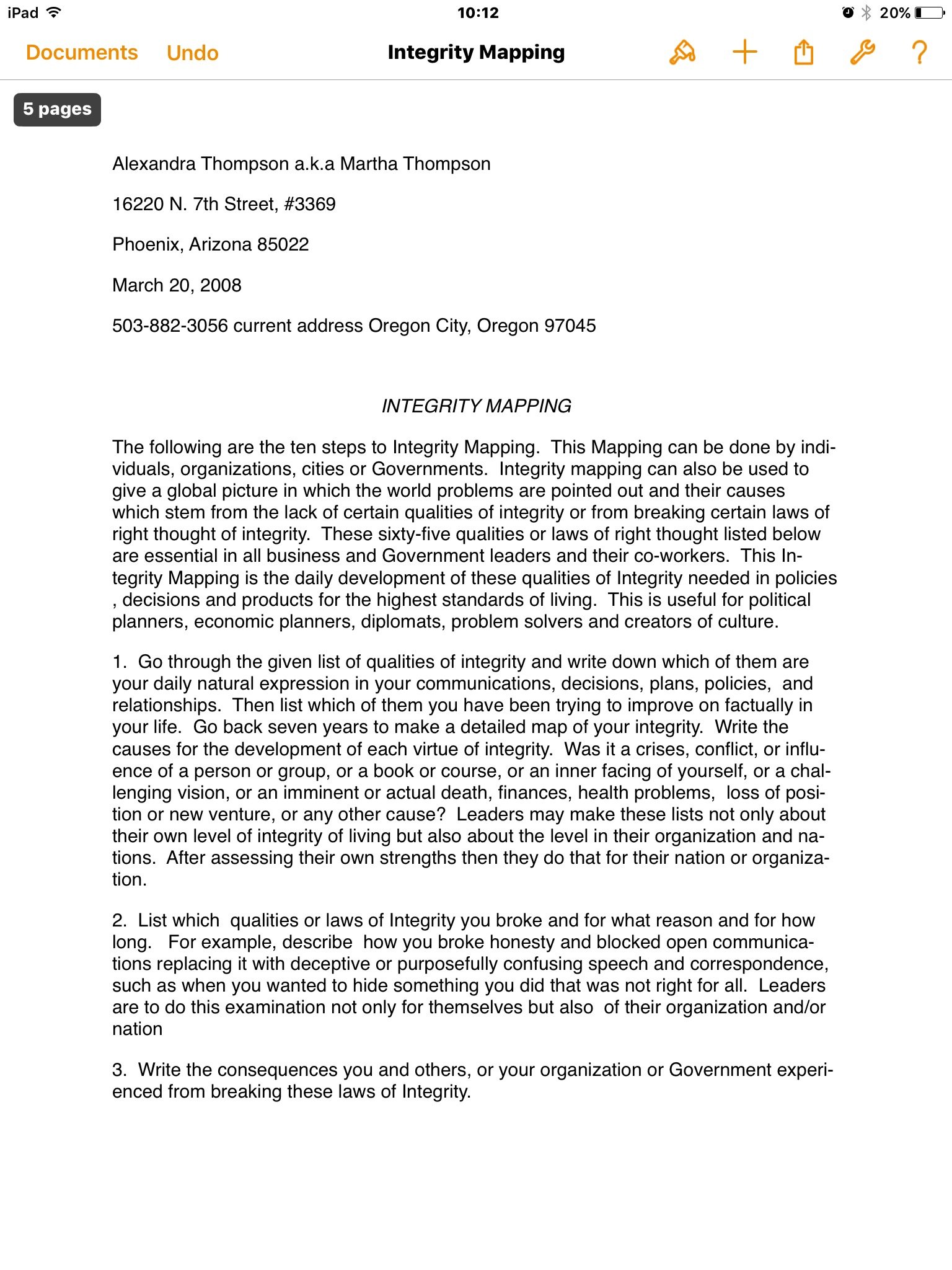Countries have common Principles which they all hold in written Constitution and citizenship oaths. Every country has agreed on common Principles and Articles to achieve them since 1947 after World War II. Each humanbeing worldwide is under oath to personally live the Principles and Articles in their private lives and public life. If they do – this holds countries free from crimes, warfare, sex abuses, bigotries and exploitations, and religious misunderstandings. The health and sanity of every Nation is created by citizen daily Principles in action. Those nations with the highest mental health problems and poorest decisionmaking which causes catastrophes in many different areas are those who break their written internationally agreed on Principles in their governments and present unprincipled living in TV, Films, computer shows and games and music. They usually take marijuanna or other drugs too. Businesses who break their Principles are those who invent and sell that which causes ill health to citizens physically and psychologically and to the environment and to the food supplies. Tests must be always administered to find where unprincipled decisions and inventions and government actions and media is being made in order to protect and to heal the countries. The following are fifteen Principles agreed on internationally. Everyone individually and in organizations and in families are to measure their daily action and thought and media viewing by these Principles. The media viewed shapes character and thinking and attitudes toward others and thus determines the future of everyone unitedly. We are each responsible to ensure only Principled behavior and insist legally on only Principled news, TV shows and films, computer games and books and magazines and music since all can incite to crime if unprincipled.
PRINCIPLES AGREED ON INTERNATIONALLY
1. Peace – achieved in part psychological by laws of harmlessness, understanding, and identity with all
2. Equality – reached in part by psychological laws of fairness, non-bigotry, and respect for the dignity of all.
3. Justice – laws are truthfulness, righteousness and discernment
4. Respect – laws are trustworthiness, detachment and humility
5. Progress – laws are responsibility, sharing, compassion
6. Tolerance – hindsight, forgiveness, and absense of egotism
7. Unity – purity of motive, bridging where there are divisive factors, and hope to envision higher standards and possibilities
8. Common Consent – creating a common interest,comeasurement (measuring everything against high standards) and adaptability
9. Cooperation – ability to see various viewpoints, sense of direction, and service
10. Harmony – right placement of people for positive influence on each other, creativity between people, balance in all efforts
11. Non-forcefulness – achieved by laws of non-manipulation, admitting mistakes, adamant will to protect the greates future
12. Freedom – attained by right thought, self-discipline, and sacrifice for the common welfare.
13. Human Rights – unselfishness, conscience, and pure reason
14. Security – achieved by goodwill, protection of all, belief in the dignity and worth of every person
15. Spirit of Brotherhood – attained by vision, beneficient labor, and welcoming new ideas that are good for all
To Integrity Map any town, State or even internationally, Questionnaires on integrity mapping are to be distributed to the citizens organizations and they include the above mentioned Principles plus questions on how they the citizens themselves understand and apply them daily. The following citizenship organizations for integrity mapping are selected as examples and of what they can do.
I. Grade Schools, high schools, colleges and business schools. Teachers are to be given the questionnaires on the Principles and how they can be understood and lived and the various psychological methods to strenthen far sighted thinking in all to much better discern cause and effects in choices all day. These are to be given to students. They will be listed below. All students are to be given the request to list the specific TV shows, films, computer shows, games, books, music and magazines each has been listening to or watching for a year and then asked specific questions as to what mental and physical problems they developed and what memory losses, temper flares and irritability, and growth in selfishness, disrespect of others and of their privacy and rights, bigotries, criticalness, competetive power manias and broken promises oaths, vows, and bitterness, and hopelessness. The students will then be asked to map out with their teachers in a class setting or in an auditorium, the specific Principles needed in their lives and how to develop them. This will include being a viewer of and listener of only that which increases high principled living and thinking. No exposure to images which could incite to crime or irresponsible, dishonest or abusive behavior – even mentally or emotionally – is to be allowed in the home or business or at friends or in the library. Specific courses which build integrity and higher abilities to think clearly and ethically will be given to the students. This will be monitored by the teachers every week by the return of Questionnaires the students fill out.
II. Librarians. Libraries can use the integrity mapping lists of the above fifteen Principles to the libraries computer shows and games and books and can give questionnaires to patrons followed by courses
III. Security Force including all branches and military can be given the same Questionnaire. Trained citizens who have been prepared by ethics counseling, and who keep the laws themselves, are to administer as above. Courses will be given
IV. Hospitals and Mental Hospitals can integrity map on each patient and courses will be
V. Retirement and Rest Homes can integrity map
VI. Prisons can integrity map on each prisoner
VII. Fallen Warriors – those with PTSD symptoms from military involvement can do integrity mapping
